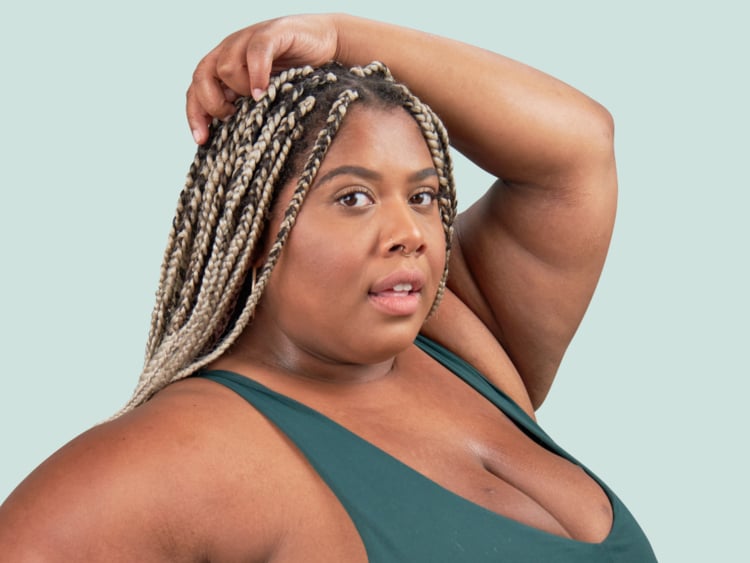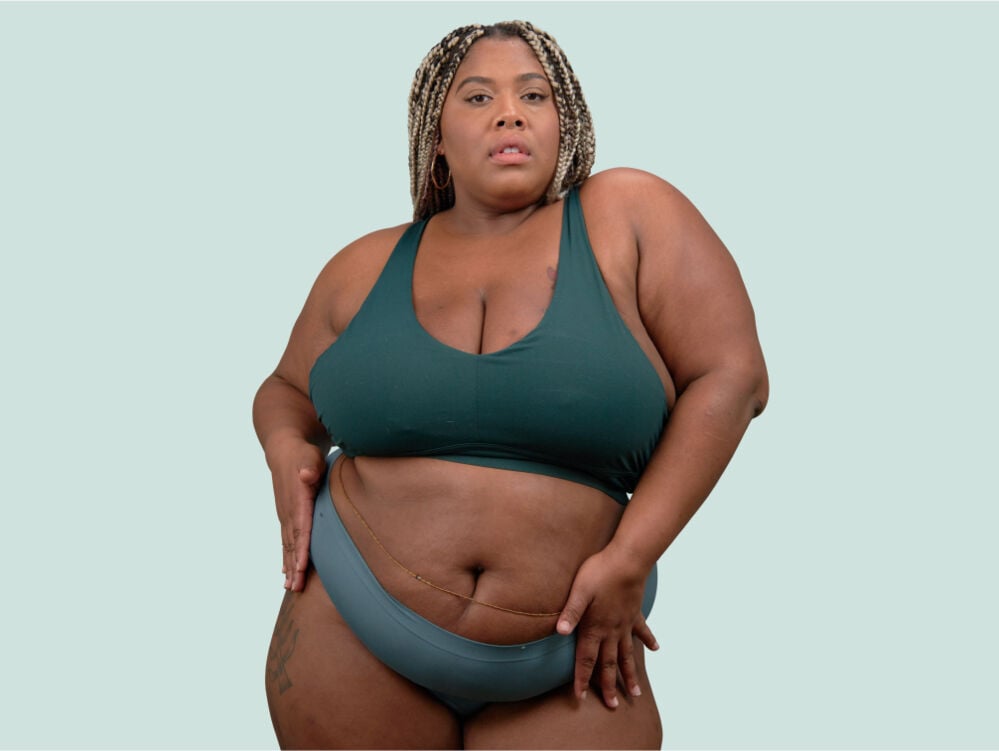-
Tracking cycle
-
Getting pregnant
-
Pregnancy
-
Help Center
-
Flo for Partners
-
Anonymous Mode
-
Flo app reviews
-
Flo Premium New
-
Secret Chats New
-
Symptom Checker New
-
Your cycle
-
Health 360°
-
Getting pregnant
-
Pregnancy
-
Being a mom
-
LGBTQ+
-
Quizzes
-
Ovulation calculator
-
hCG calculator
-
Pregnancy test calculator
-
Menstrual cycle calculator
-
Period calculator
-
Implantation calculator
-
Pregnancy weeks to months calculator
-
Pregnancy due date calculator
-
IVF and FET due date calculator
-
Due date calculator by ultrasound
-
Medical Affairs
-
Science & Research
-
Pass It On Project New
-
Privacy Portal
-
Press Center
-
Flo Accuracy
-
Careers
-
Contact Us
What Is Sexuality? How to Figure Out Your Sexuality


Every piece of content at Flo Health adheres to the highest editorial standards for language, style, and medical accuracy. To learn what we do to deliver the best health and lifestyle insights to you, check out our content review principles.
Written by Alice Broster
Exploring your sexuality can be a really exciting process. Dating opportunities open up, you can connect with new people, and you can learn so much more about yourself and what you like. But, exploring your sexuality can also feel confusing and daunting. Studies from both the U.S. and the U.K. have highlighted that more people than ever identify as LGBTQ+. And research has concluded that sexuality should be seen as an ever-moving spectrum. That means that what — or who — you like at one point in your life may not always be the same.
So if you’ve found yourself thinking more about sexuality, here’s a brief rundown on sexual labels, mental health, and when sexuality develops.
What is sexuality?
Sexuality is a fundamental aspect of who you are, so it’s totally normal to reflect on what it is.
It’s important to note that sexuality is more than who you choose to have sex with. It’s about how you feel, what turns you on, and the people you’re attracted to. You can create connections with people on many levels. Here are the most common types of connection:
Emotional: If you can’t get past the way you feel when you chat with someone; they have a way of expressing themselves that totally clicks with you; or you’re really attracted to how they treat others, then you may have a really strong emotional attraction and/or bond to/with them. This can happen in both romantic and platonic relationships.
Physical: Some people are simply your type. It might be the way they touch their hair when they’re talking to you, how they smell, or the way their clothes look. Again, you can be physically attracted to friends as well as romantic partners.
Sexual: Sexual attraction is the raw desire to be with someone intimately. You may not be able to put your finger on exactly why they turn you on, but you may feel a pull towards them. You may also notice sexual attraction through physical sensations in your body, such as arousal. It’s what movies describe as “chemistry.”
In most of your romantic relationships, you’ll likely feel more than one of these types of attractions. Just because you’re emotionally attracted to someone doesn’t necessarily mean you’ll want to rip their clothes off, and you may not always feel on the same emotional level as the people you’re sleeping with. Sexuality and relationships are varied, sometimes complicated, and free to be defined by you.
Take a quiz
Find out what you can do with our Health Assistant
Sexuality: Ways you might identify
There are many ways that you might label your sexual identity: You may not feel like one label covers how you feel all of the time, or you may make the decision to not label your sexuality at all. That’s OK. There’s no one-size-fits all answer when it comes to expressing your sexual identity, so doing what feels right for you is what’s important.
Also, remember that language is ever-evolving and expanding, so we’re always coming up with new ways to describe who we are. Don’t feel put out or discouraged if none of the terms below resonate with you: It’s not an exhaustive list, and there’s plenty of other labels out there that might fit. These are just the most commonly used ones.
Some sexual labels and terms you might have come across are:
Heterosexual: People who are heterosexual (or straight) are exclusively sexually attracted to members of the opposite gender.
Homosexual: This term was used historically to describe people who are attracted to members of the same gender, but it’s outdated and rarely used today. “Homosexual” can also be found in antiquated medical contexts that consider same-sex attraction to be a medically dangerous condition. Today, LGBTQ+ people most often refer to themselves as gay, lesbian, or queer.
Bisexual/bi: People who are bisexual are attracted to more than one gender. Often bisexuals experience bi-erasure, or the silencing and judgment of their sexuality, based on the gender of the person they’re dating. Remember never to assume someone’s label based on the gender of their partner. It’s best practice to use “bi,” rather than “bisexual,” because “bi” is becoming an umbrella term that encompasses identities like pan.
Pansexual/pan: People who are pansexual might build romantic, physical, and sexual bonds with people regardless of their gender. Best practice in the LGBTQ+ community is to use “pan,” rather than “pansexual.”
Asexual/ace: People who are asexual, or “ace,” don’t experience sexual attraction to anyone. It’s important to note that sexuality is a spectrum, so it means different things to different people. Some asexual people, known as “grey-asexuals,” may experience rare feelings of sexual attraction to another person in certain circumstances. Asexuality is not the same as celibacy because celibacy is a choice, while asexuality isn’t. Asexual people may still experience romantic attraction. They might also build long-term relationships and choose to have sex for reasons outside of sexual attraction.
Fluid: People who are fluid acknowledge that their sexual orientation or gender identity changes and don’t want to restrict themselves by selecting just one label.
Queer: Queer is an umbrella term that encompasses anyone who doesn’t identify as straight/cisgender. However, some people in the LGBTQ+ community still view “queer” as a slur, though many have worked hard to reclaim the term since the 1980s.
If you’re unsure about how you would identify — or feel overwhelmed by the many ways that you can explain your behavior, attraction, and connections — that’s totally fine. Since knowledge is power, and sexuality is so fundamentally linked to our sexual and mental health, the more you know about sexuality, the more you may understand about yourself. As this happens, you may gain the language to talk about how you feel.

Sexuality: When do you start to express it?
Figuring out your sexuality is a personal journey. For some, it’s as simple as “I know exactly what feels right for me.” However, it isn’t always that simple for everyone, and the world we live in can make it hard for some of us to be open about who we are.
Even before you start dating — or entering relationships seriously — you might be able to look back on the people you had crushes on as indicators of your sexuality. If you no longer think you’re heterosexual — but aren’t sure how to describe yourself — you might realize that you crushed on friends of the same gender at school, or maybe gender presentation doesn’t matter to you at all when it comes to celebrity crushes. Or maybe you’ve never felt sexually attracted to anyone at all.
If you want to explore your sexuality by having intimate experiences with all genders, that’s something that can be really positive, empowering, and fun. You shouldn’t feel ashamed of expressing who you are.
However, you should always keep your sexual health at the front of your mind when meeting and hooking up with new people. Protecting yourself from STIs, including HIV, is of the utmost importance. It’s a good idea to speak to your doctor or health care professional about the best contraceptive option for you.
Are sexuality and mental health linked?
No matter how open you are, you are a person of this world and may have picked up and internalized sexual shame and pressure as you grew into adulthood. Shaking off society’s expectations of what is normal, acceptable, and right can be difficult, which can make exploring your sexuality feel like an impossible option.
A study by Stonewall, a British LGBTQ+ organization, found that half of LGBTQ+ people had experienced depression, and three in five had experienced anxiety. As these stats show, feeling unable to fully express who you are and living in a society that still treats LGBTQ+ people as “other” has a direct impact on a person’s mental health.
Please remember that mental and physical health concerns within the LGBTQ+ community are a result of homophobia, biphobia, transphobia, and discrimination, not because being LGBTQ+ is intrinsically bad or wrong. Finding an LGBTQ+-affirming therapist can be one way to cope with anti-LGBTQ+ attitudes and discrimination.
You should feel celebrated and supported by the people around you, and you deserve to have a life free from shame and discrimination. Your emotional and sexual wellness is just as important as your physical health. Nurturing it can help you make more informed decisions with partners.
Sexuality: The takeaway
Your relationship with your own sexuality is one that lasts a lifetime and can be far from simple. How you feel and identify today may be totally different in a few years’ time. And that’s totally fine.
Developing your understanding of sexual labels; how your sexual and overall health is linked; and the ways in which your sexuality is fluid can provide you with the language to explain how you feel and explore your sexuality in a safer way with new partners.
If you’ve been affected by anything in this piece or are struggling with your mental health and would like to speak to someone, Flo has gathered links to support services that might be helpful. Please visit this page for helplines in different countries.


Hey, I'm Anique
I started using Flo app to track my period and ovulation because we wanted to have a baby.


The Flo app helped me learn about my body and spot ovulation signs during our conception journey.


I vividly
remember the day
that we switched
Flo into
Pregnancy Mode — it was
such a special
moment.
Real stories, real results
Learn how the Flo app became an amazing cheerleader for us on our conception journey.
References
Jeffrey M. Jones. “LGBT Identification Rises to 5.6% in Latest U.S. Estimate.” GALLUP, 24 Feb. 2021, news.gallup.com/poll/329708/lgbt-identification-rises-latest-estimate.aspx.
Hugo Greenhalgh. “More Britons than Ever before Identify as Lesbian, Gay or Bisexual.” Reuters, 28 May 2021, www.reuters.com/article/us-britain-lgbt-stats-idUSKCN2D90VK.
Drs. Alfred Kinsey, Wardell Pomeroy, And Clyde Martin. “The Kinsey Scale.” Kinsey Institute Indiana University, kinseyinstitute.org/research/publications/kinsey-scale.php.
“Erasure of Bisexuality.” GLAAD, www.glaad.org/bisexual/bierasure.
“Sexual Attraction and Orientation.” KidsHealth, kidshealth.org/en/teens/sexual-orientation.html.
Vanessa Woog, Anna Kågesten. “The Sexual and Reproductive Health Needs of Very Young Adolescents Aged 10–14 in Developing Countries: What Does the Evidence Show?” Guttmacher Institute, www.guttmacher.org/report/srh-needs-very-young-adolescents-in-developing-countries.
“LGBT in Britain - Health.” Stonewall, 7 Nov. 2018, www.stonewall.org.uk/lgbt-britain-health.




